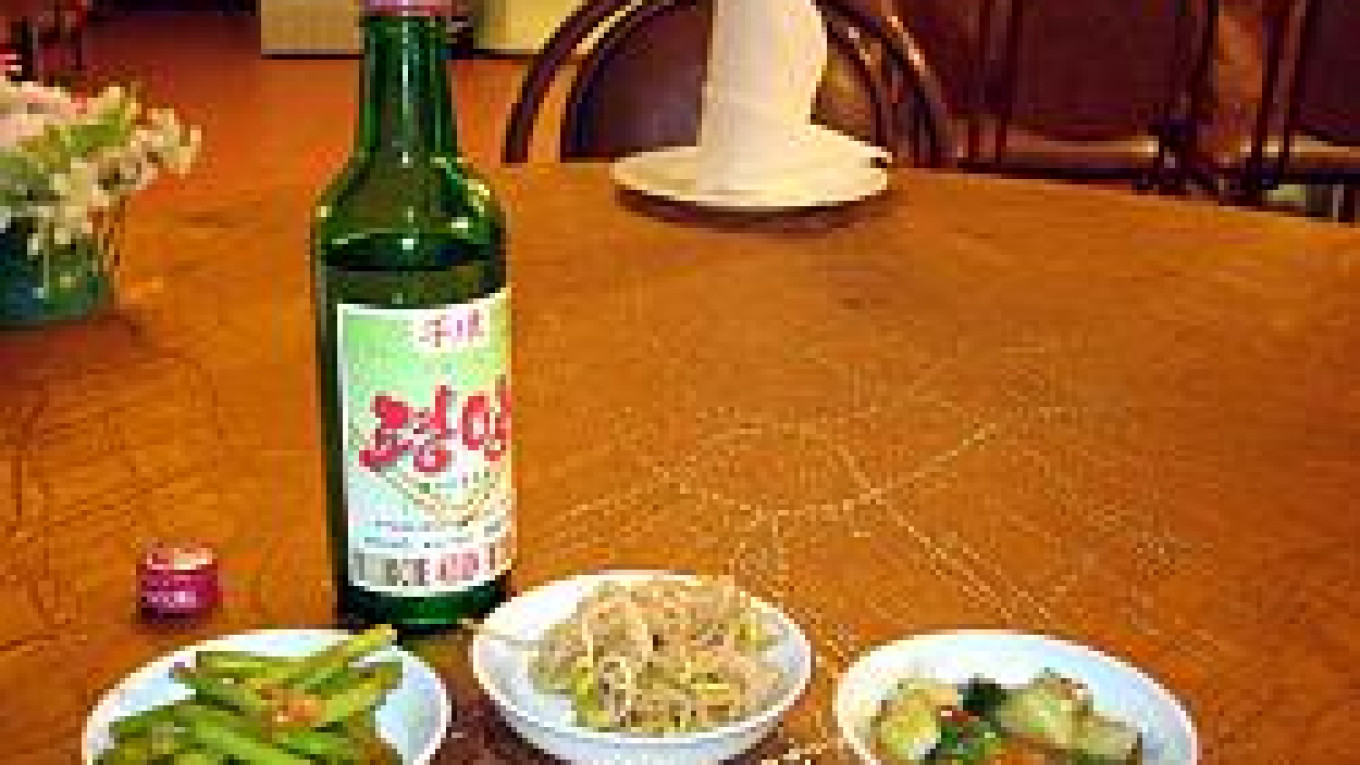It is not quite clear who owns this humble eatery in Vladivostok, but the staff is all direct from Pyongyang, as is the rhetoric.
"We hate America," proprietor Kim Song Oh said calmly in Russian on learning her customer was American. "We want the South and North to be together, and America shouldn't meddle."
But the service still comes with a smile, and Kim, who speaks a little English, says politely a couple of times during the conversation: "Nice to meet you." Nor does she seem all that enamored of her present surroundings, lamenting the problems businesspeople face everywhere in Russia: too many inspections, too many bribes, too much bureaucracy. In North Korea, she says, she was a journalist who wrote about flowers cultivated in honor of the communist dictatorship's Kim dynasty -- the Kimjongilia and Kimilsungilia, named after leader Kim Jong Il and his late father.
The restaurant, which opened 18 months ago on the first floor of a hotel, serves Korean staples such as bibimbap (mixed rice, beef and vegetables) and kimchi (pickled vegetables), as well as noodle dishes specific to North Korea.
The waitresses wear white with black polka-dotted belts. A video shows dancing women pirouetting in military camouflage. There is no sign of the Kim personality cult that pervades North Korea, and nothing that would particularly appeal to tourists, although recently, a group of visiting South Koreans tried largely in vain to chat up the waitresses.
State-run North Korean restaurants have popped up in a few other countries across Asia whose governments are friendly to Pyongyang, but it is not known whether the Pyongyang Restaurant is one of them, and manager Kim is hesitant to talk about it.
Russia shares a 19-kilometer border with North Korea, 120 kilometers west of Vladivostok, and has warm relations with its neighbor.
One thing at the Pyongyang Restaurant is definitely not North Korean: the prices. Dinner for one costs a hefty 480 rubles (about $16).
Kim is reluctant to talk about the differences between her impoverished country, where life is a struggle simply to survive, and capitalist, democratic South Korea. Has she seen any TV pictures of the booming South during her time abroad? "You're asking too many questions," she replies, and disappears to tend to other customers.
A Message from The Moscow Times:
Dear readers,
We are facing unprecedented challenges. Russia's Prosecutor General's Office has designated The Moscow Times as an "undesirable" organization, criminalizing our work and putting our staff at risk of prosecution. This follows our earlier unjust labeling as a "foreign agent."
These actions are direct attempts to silence independent journalism in Russia. The authorities claim our work "discredits the decisions of the Russian leadership." We see things differently: we strive to provide accurate, unbiased reporting on Russia.
We, the journalists of The Moscow Times, refuse to be silenced. But to continue our work, we need your help.
Your support, no matter how small, makes a world of difference. If you can, please support us monthly starting from just $2. It's quick to set up, and every contribution makes a significant impact.
By supporting The Moscow Times, you're defending open, independent journalism in the face of repression. Thank you for standing with us.
Remind me later.


